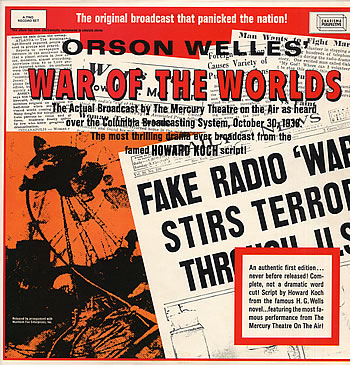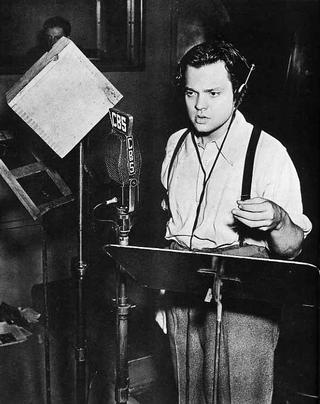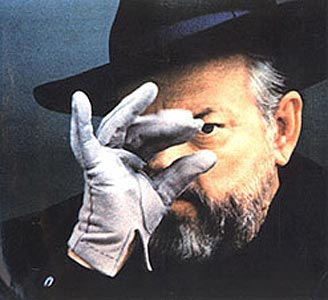Serendip is an independent site partnering with faculty at multiple colleges and universities around the world. Happy exploring!
Towards Day 14: Faking It

Notes by SandraG and by platano
![]()
I. coursekeeping
*my nonfictional experience of getting an x-ray Tuesday evening that "tells us nothing about what's going on"
*signing in; notetaking by Sandras
*writing conferences available Mon, Tues, Wed
(NOT next Thurs or Fri, when I'm out of town)
*a few more late-breaking mid-semester evals:
pfischer: We as a class need to be more disciplined in our discussions .... we should focus more on form ... not necessarily the ideas themselves.
platano: I would like a bit more direction in what types of things we should be posting. I often find myself unsure of what topics and ideas are post-worthy.
* and relevant ideas from elsewhere!
FatCatRex: PostSecret is an initiative to get people to anonymously spill their secrets ... I wonder how many of these are true, how many are exaggerated ... for the sake of public recognition/publication...and how many are totally fictitious? ... the idea of anonyminity (sp?) as something which allows the truth, or facts, to become clear is one we haven't discussed
History and Fact vs. Fiction: we should perhaps think more about the temporality of facts.
* for Tuesday's discussion, watch Errol Morris's 1987 documentary film, Thin Blue Line (all films are now on 3-hour library reserve)
* newly crafted syllabus also now up on course homepage
* book costs on Amazon:
The 9/11 Report: from $1.78
The Path to Paradise: from $9.87 (also on Google Books)
Henrietta Lacks: from $13.77 (still in hardback, but also on Google Books)
Demon-Haunted World: from $3.38 (also on Google Books)
The Call of Stories: from $.01 (also on Google Books)
II. reflecting on what emerged during our (abbreviated) exploration, Tuesday, of the (non?) narrative definitional/ explanatory/ etymological/ conversational work of dictionaries
SuperMarioGirl: I was talking about the value of both the Merriam-Webster online dictionary and the Urban dictionary. Which one would I choose to reference from here on out if I could only have one?
Smacholdt: there is no “most reliable dictionary”, but different dictionaries serve different purposes.
maht91: I found myself placing more trust in older dictionaries and those dictionaries that provide the origin of the word. I also trusted the dictionaries that provided me with an explanation and history .... But I still find that the definitions ... don't satisfy me because you could dig in more and find the definitions of the words that were initially used to define the first words. You also also have many sources and that complicates finding the true meaning of the word. Dictionaries can be reliable to an extent ... but I would still doubt the complete reality of the words.
ckosarek: the uncertainty of etymology
III. for today, we have as foils two productions by Orson Welles: 1938 War of the Worlds and 1975 F for Fake

how might our dictionary exercise help us make sense of what happened on October 30, 1938, when a work of dramatic fiction was misheard by a million people as a factual report?
EVD: I was REALLY surprised by the alleged hysteria over the broadcast.
Owl: one definition in the OED stated that reality was "The quality or state of being real" .... When I looked up "quality" ... one of the definitions ... was "degree of excellence" .... "degree" indicates that there is a standard .... But who judges what these standards are? and ... then would there only be one perspective, one opinion, and one experience?
-------
maht91: In the past, radio was a source of entertainment for people, but also a source of news. This explains why the people have trusted the radio show, War of the Worlds, as they thought of it as a reliable source of information. I can't deny that the way the story of the radio was presented had some effects that made it sound so real. Here are a couple of examples: choosing real places and names of cities, constantly reminding the people of the places, bringing people from different parts of the country from scientists to eyewitnesses, and the background noise....
tgarber: while listening to the broadcast, I found myself convinced of an alien invasion.
SuperMarioGirl: If it were me, I would have been scared sh*tless .... I listened in amazement at the best April Fools' joke ever .... I definitely would have been one of the terrified, gullible 25%.
Owl: I actually started to believe that it could happen. I once heard, that if one can imagine something, than it could possibly happen .... It makes me wonder whether we do exist in other worlds and not just the one we believe to be real.
kgould: It's really interesting to think that maybe we do live in other worlds than the one we ascribe to be real .... what is physicality anyway? Look at people who play MMORPGs like World of Warcraft (WoW.) .... A character is constructed ... developed, used to play in this virtual world, for hours, days, weeks, months. Communities of players are forged together .... How is that not real? How is that not a world?...
tgarber: trailer from 1953 movie
(see also Steven Spielberg's 2005 version)
might we re-locate nonfiction as a form in the attitude of the hearer (rather than the intention of the creator?)

Hadley Cantril, The Invasion from Mars: A Study in the Psychology of Panic (1947)
6 million heard broadcast; 1 million upset
4 announcements during broadcast; 4 after; some stations interrupted w/ others
Gallup poll: 28% believed it was a newscast; frantic telephone calls
Why did the frightened listener so readily confused fiction w/ reality?
broadcast fit organized mental construct:
radio accepted vehicle for important announcements: confidence in broadcasting
prestige of speakers (scientists, military men)
specific details (place names)
everyone bewildered
total experience
tuning in late: false (realistic) rather than correct (detached) standard of judgment
w/out proper warning signals: misinterpretation
Panic arose from an error in judgment; what enabled people to choose correctly?
more highly educated/wealthier people recognized broadcast as a play:
capacity to distinguish between fiction and reality: on checking other sources
conditions inhibiting critical ability: personal susceptibility (insecurity, phobias, amount of worry, lack of self-confidence, fatalism, religiosity, frequence of church attendance); listening situation (corroboratory effect of others’ behavior, contagion of other’s fear, immediacy of danger)
historical setting: instability of important social norms
unsettled economic conditions since 1929; European war scare; thrill of disaster
H.G. Wells: “the forceps of our minds are clumsy forceps and crush the truth a little in taking hold of it” (Experiment in Autobiography, 1934)
six comparative individual cases (2 well educated, 2 economically insecure, 2 religious, each w/ 1 frightened, 1 not)
why the panic? suggestibility: preexisting mental sets made the story understandable; lacking standards of judgment to make reliable checks; no existing standards adequate to task; unaware of alternative interpretations
clearest index of critical ability: readiness to re-evaluate first interpretations
outstanding index to suggestibility: complete absence of awareness that things might be otherwise (need to select and seek a standard of judgment)
panic occurs when a highly cherished, commonly accepted value is threatened, and no certain elimination is in sight; extreme behavior evoked by broadcast result of complete inability to alleviate/control consequences of invasion
Nov. 2, 1938 column: “I doubt if anything of the sort would have happened four or five months ago. The course of world history has affected national psychology. Jitters have come to roost. We have just gone through a laboratory demonstration of the fact that the peace of Munich hangs heavy over our heads, like a thundercloud.” [highly disturbed economic conditions engendered widespread feeling of insecurity; Hitler provided directed relief to bewildered souls]
Latent anxieties conducive to panic minimized if critical abilities can be increased; attitude of readiness to question interpretations; need for sufficient, relevant knowledge to evaluate different interpretations; extensive educational opportunities, less harassed by emotional insecurity from underprivileged environments
cf. w/ F for Fake
(per pfischer: Precursor to Reality TV?)

from Richard Combs, Monthly Film Bulletin Review:
market for fakes created by the fallibility of "experts"
Welles' own early career in fakery
fictional documentary conjured out of dexterity @ editing
fast switching subjects, styles united by proposal that
fiction-making in any form is a lie, puzzle, disappearing act
no "key": fiendishly constructed to frustrate any single attempt to unlock it/identify one all-determining creator
irony of Byzantine permutations directed @ "experts" who "speak to us with the absolute authority of the computer," extensively taken in; created a maze in which commentators might lose themselves:
"centreless labyrinth" parodies very notion of "pure" creativity and autonomous, attributable authorship
most important distinction not genuine or fake, but good or bad fake
"Art is a lie ... that makes us realize the truth ...." but how little that truth has to do w/ what we think of as real: toothbrush, bus ticket, the grave


